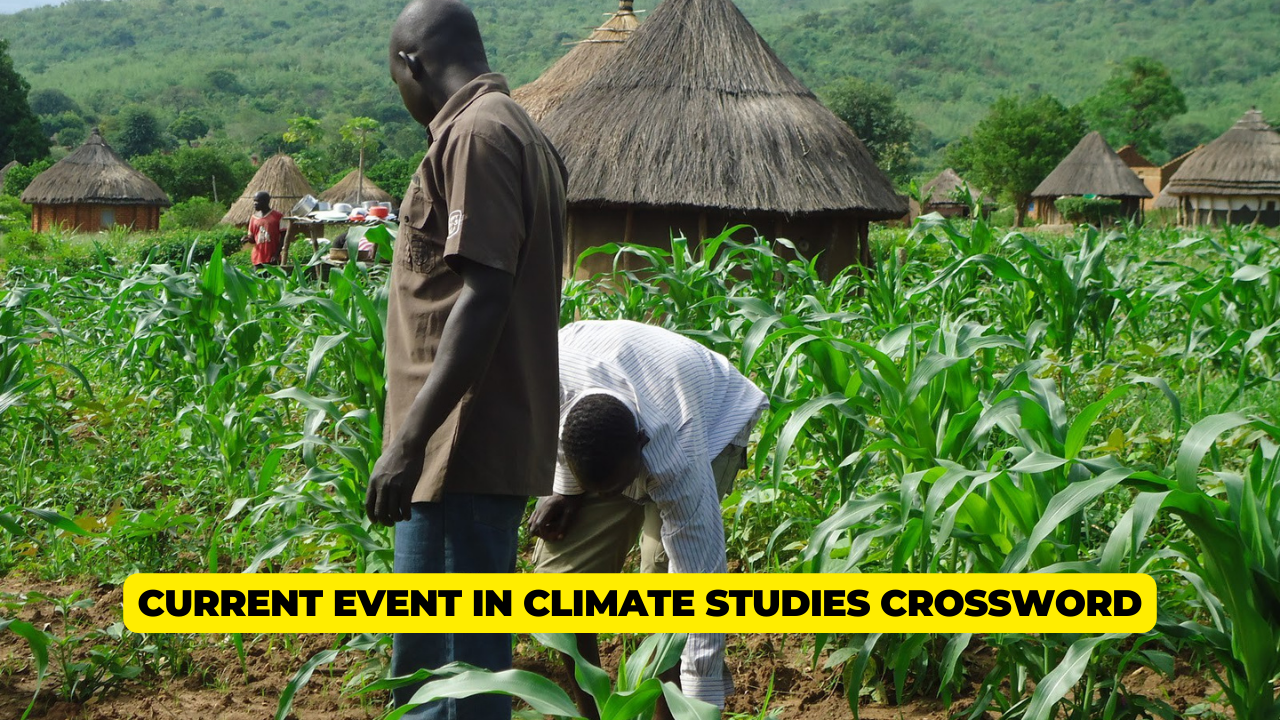
Current Event in Climate Studies
In the realm of climate studies, keeping abreast of current events is crucial. The field is dynamic, with continuous advancements and discoveries shaping our understanding of the Earth’s climate system. This article delves into the latest developments in climate studies, providing a detailed overview of recent findings, research, and their implications.
Climate Change: The Basics
Climate change refers to significant, long-term changes in the global climate. It encompasses both natural variations and those induced by human activities. The primary driver of recent climate change is the increase in greenhouse gases, such as carbon dioxide (CO2), methane (CH4), and nitrous oxide (N2O), primarily from fossil fuel combustion, deforestation, and industrial processes.
Recent Findings in Climate Research
1. Rising Global Temperatures
Recent studies indicate that global temperatures continue to rise at an alarming rate. According to the Intergovernmental Panel on Climate Change (IPCC), the average global temperature has increased by approximately 1.2°C since the pre-industrial era. This rise is primarily attributed to human activities, notably the burning of fossil fuels and deforestation.
2. Accelerating Ice Melt and Sea Level Rise
The polar ice caps and glaciers are melting at unprecedented rates. Research from the National Snow and Ice Data Center (NSIDC) highlights that the Arctic sea ice extent has declined by about 13% per decade since 1979. This melting contributes to sea level rise, which poses significant risks to coastal communities. Recent data suggest that sea levels have risen by approximately 20 centimeters since the late 19th century, with the rate of rise accelerating in recent decades.
3. Increased Frequency and Intensity of Extreme Weather Events
Climate change is linked to the increased frequency and intensity of extreme weather events, including hurricanes, heatwaves, droughts, and heavy precipitation events. A study by the National Oceanic and Atmospheric Administration (NOAA) found that the number of weather-related disasters has increased significantly over the past few decades. These events have profound impacts on ecosystems, economies, and human health.
Innovative Approaches in Climate Research
1. Advanced Climate Modeling
One of the significant advancements in climate studies is the development of sophisticated climate models. These models simulate the Earth’s climate system, allowing scientists to predict future climate scenarios with greater accuracy. The latest models incorporate a wide range of variables, including atmospheric composition, ocean currents, and land surface changes, providing a more comprehensive understanding of climate dynamics.
2. Satellite Observations
Satellite technology has revolutionized climate research. Satellites provide continuous, high-resolution data on various climate parameters, such as temperature, precipitation, and ice cover. This data is crucial for monitoring changes in the climate system and validating climate models. Agencies like NASA and the European Space Agency (ESA) have launched numerous satellites dedicated to climate observations, such as the Aqua and Terra satellites.
3. Paleoclimatology
Paleoclimatology, the study of past climates, offers valuable insights into the natural variability of the Earth’s climate system. By analyzing ice cores, tree rings, and sediment records, scientists can reconstruct climate conditions over millions of years. This historical perspective helps in understanding the current trends in climate change and provides context for future projections.
Implications of Recent Climate Studies
1. Impact on Ecosystems
The findings from recent climate studies underscore the profound impact of climate change on ecosystems. Rising temperatures and changing precipitation patterns affect the distribution and behavior of species. For instance, coral reefs are experiencing widespread bleaching due to warmer ocean temperatures, threatening marine biodiversity. Terrestrial ecosystems are also affected, with shifts in species ranges and alterations in ecosystem processes.
2. Socio-Economic Consequences
Climate change has significant socio-economic implications. The increased frequency of extreme weather events leads to substantial economic losses and disrupts livelihoods. Agriculture is particularly vulnerable, with changing climate conditions affecting crop yields and food security. Moreover, sea level rise and coastal erosion threaten infrastructure and human settlements, necessitating costly adaptation measures.
3. Public Health Concerns
The impact of climate change on public health is a growing concern. Heatwaves, for example, are linked to increased mortality and morbidity, particularly among vulnerable populations. Changes in the distribution of vector-borne diseases, such as malaria and dengue fever, are also associated with shifting climate patterns. Addressing these health impacts requires integrated approaches that combine climate mitigation and adaptation strategies.
Mitigation and Adaptation Strategies
1. Reducing Greenhouse Gas Emissions
Mitigating climate change requires substantial reductions in greenhouse gas emissions. This can be achieved through various means, including transitioning to renewable energy sources, enhancing energy efficiency, and implementing carbon capture and storage technologies. International agreements, such as the Paris Agreement, play a crucial role in coordinating global efforts to reduce emissions.
2. Enhancing Climate Resilience
Adaptation strategies are essential for enhancing resilience to the impacts of climate change. This includes developing infrastructure that can withstand extreme weather events, improving water management practices, and promoting sustainable agriculture. Community-based adaptation initiatives are particularly effective in addressing local vulnerabilities and ensuring that adaptation measures are context-specific.
3. Promoting Climate Education and Awareness
Raising awareness about climate change and promoting climate education is vital for fostering public support for mitigation and adaptation efforts. Educational programs that emphasize the science of climate change, its impacts, and potential solutions can empower individuals and communities to take action. Additionally, involving stakeholders, including governments, businesses, and civil society, is crucial for building a collective response to climate challenges.
Conclusion
The field of climate studies is continually evolving, with new research providing deeper insights into the mechanisms and impacts of climate change. Staying informed about current events in climate studies is essential for understanding the urgency of addressing climate change and for developing effective strategies to mitigate and adapt to its impacts. By leveraging advanced technologies, innovative approaches, and collaborative efforts, we can make significant progress in tackling one of the most pressing challenges of our time.





